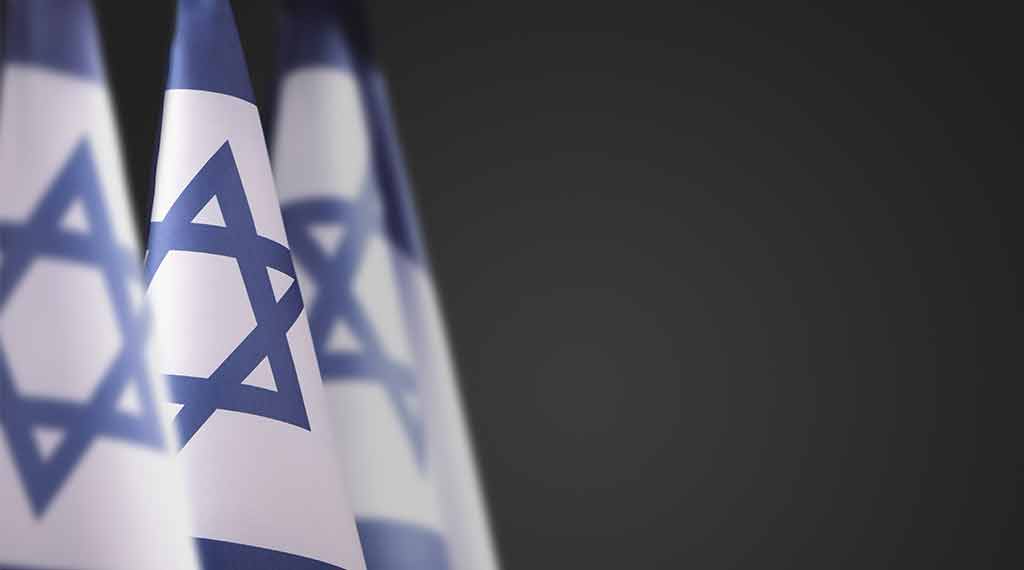Oct. 7: What happened, why it happened, and what made it horribly inevitable

Hamas’ massacre of 1,200 Israelis on Oct. 7, 2023, was a singular event in world history. This is true not solely because of the breathtaking savagery of those attacks but because of the campaign that began almost immediately after them to turn the perpetrator into the victim and isolate Israel on the global stage.
The fact has been only sparsely explored, but both the attacks and the anti-Israel reaction were planned long in advance. Now, a new documentary from the courageous and renowned filmmaker Pierre Rehov brings to light the seeds of the massacre, some of which were planted centuries before, and the powerful forces that have worked so energetically since Oct. 7 to turn the world against Israel.
Rehov, who has given the world numerous justly acclaimed documentaries defending Israel and revealing the actual mindset and goals of the Palestinian jihadis, has produced his crowning work to date in “Pogrom(s).” This chilling but highly informative exposé begins with a definition of the word “pogrom” itself: “A violent riot incited with the aim of massacring or expelling an ethnic or religious group, particularly Jews.” While Oct. 7 was certainly a pogrom, the parenthetical plural reminds us that there have been many others, and if those who planned Oct. 7 and then skillfully manipulated public opinion after it get their way, it won’t be the last.
“Pogroms(s)” combines captured Hamas footage of Oct. 7, which was produced so that Islamic jihad sympathizers the world over could rejoice in the butchering of Jewish civilians, with new interviews with a wide array of experts on Islam and terrorism in order to provide a unique insight into what drove the Palestinian Arabs who perpetrated the attacks to celebrate what they were doing and what led to the demonization and isolation of Israel after the attacks, despite their unparalleled barbarity.
Unlike other films that have covered the horrific events of that fateful day, “Pogrom(s)” makes no attempt to play on the emotions of the viewer, nor does it linger on the bloodiest footage of the attacks in an attempt to arouse fury and rage against the attackers. Rehov, always deft at striking and maintaining the tone that best befits the subject at hand, instead offers a searching exploration of the historical context of the hatred of Jews that led to Oct. 7, as well as of the strategies that the Muslim Brotherhood, Qatar, and their leftist allies and useful idiots in the West employed in order to turn the attacks to their own advantage.
That is not to say, however, that “Pogrom(s)” is a clinical or academic examination of the causes and aftermath of Oct. 7. Even those who are familiar with the horrific events of that day will find the footage taken from Hamas GoPro cameras to be utterly chilling. Hamas jihadis exultantly shout “Allahu akbar” as they aim machine gun fire into the bungalows where Israeli civilians are seen moving.
The unalloyed joy of the gunmen is jarring to Westerners who are used to thinking of mass murderers as driven by rage, hatred, and psychosis. The Hamas jihadis, on the other hand, look as if they’re at a party or a religious revival meeting, and the jolting impact of Rehov’s presentation is that it soon becomes clear that in their minds that what they were doing was a little of both.
“Pogrom(s)” goes into detail about how the murder of Jews has been presented to Palestinian Muslims as a meritorious and even holy act for over a century (and, indeed, much longer than that). The jihadis of Oct. 7 were programmed virtually from birth to regard their Jewish neighbors as the worst enemies of the Muslims, “the most vehement of mankind in hostility to those who believe” (Qur’an 5:82).
- Hezbollah wants a ceasefire now. Here’s why Israel shouldn’t give them one. - October 17, 2024
- Media heaps praise on slain Hezbollah top dog Nasrallah - October 9, 2024
- The decline and fall of the Iranian empire - October 1, 2024
